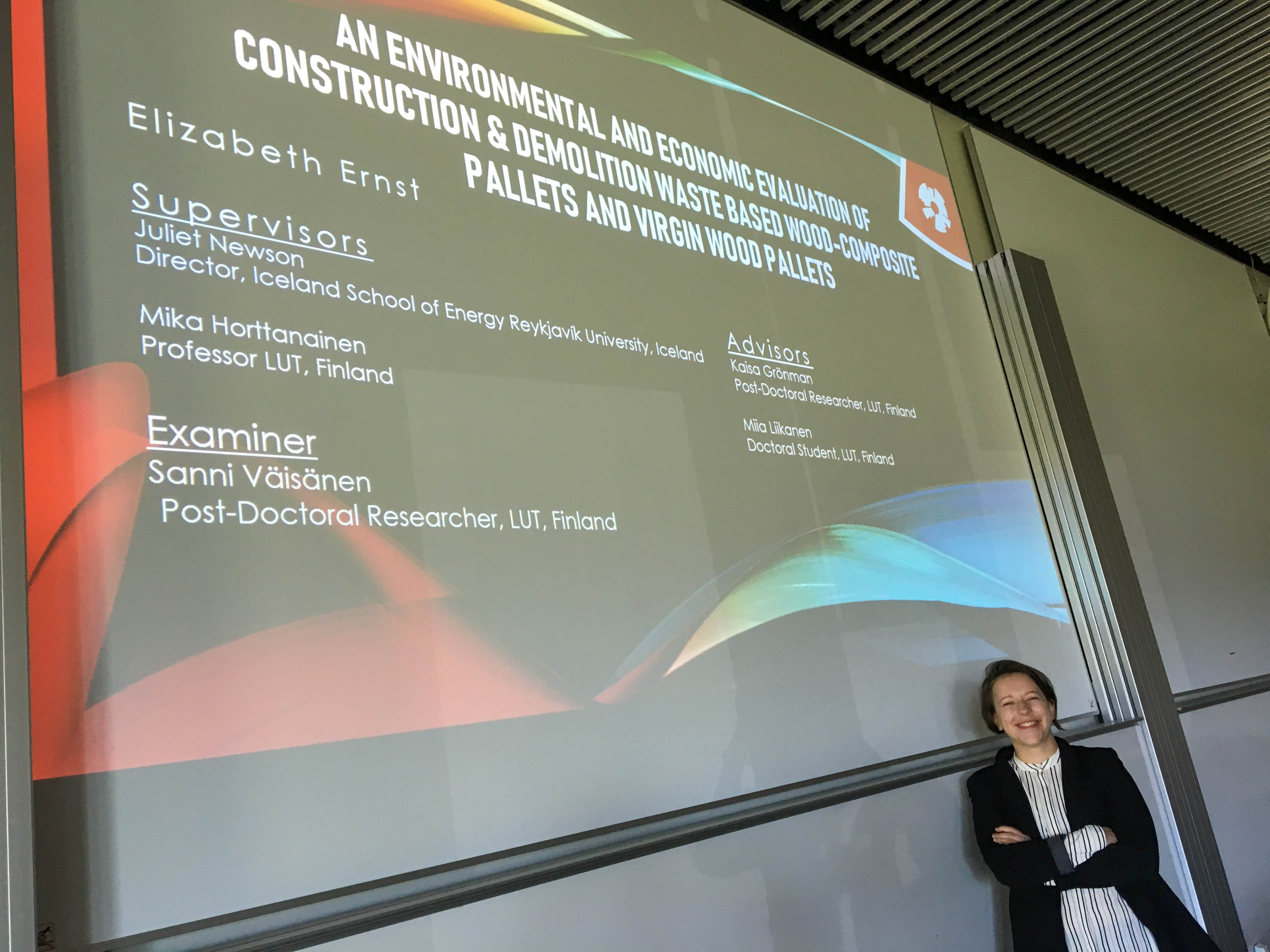MSc Thesis: An environmental and economic evaluation of construction & demolition waste based wood-composite pallets and virgin wood pallets
REYKJAVIK, June 05 - MSc in Sustainable Energy candidate, Elizabeth (Liz) Ellen Ernst, successfully defended her master's thesis where she performed an environmental and economic evaluation of the construction and demolition waste based wood-composite pallets and virgin wood pallets. Liz' research was supervised by Juliet Newson from Reykjavik University, as well as Mika Horttanainen, Kaisa Grönman, and Miia Liikanen from Lappeenranta University of Technology.

As Liz explains, construction and demolition waste (CDW) is one of the most voluminous waste streams generated in the European Union. By 2020, the goal of the Waste Framework Directive 200/98/EC is to have EU the member states recover 70% of the total waste volume. Liz states that looking for ways to utilise recovered CDW as feed-stock for raw material is a critical method for achieving the EU waste targets. As such, her thesis looked at the possibility of using CDW to produce wood-plastic composite (WPC) pallets from and environmental and economic perspective and compares them to pallets made from virgin wood material.
Liz used a life cycle approach to evaluate the environmental impacts of both pallet systems. She evaluated the global warming potential (GWP) for each and found that for 1000 pallet trips the WPC pallet has a lower impact on the GWP. Liz also evaluated the economic cost/benefit of providing a WPC or wood pallet from the perspective of a pallet pooling company. Liz took into account three cost variables: the cost of pallet acquisition, repair, and theft management. She found that for 1000 pallet trips the WPC proved to be less costly for the pallet pooling company. She adds that the results were due largely to the number of pallets it takes to fulfil the functional unit of 1000 pallet trips; 12 wood pallets and 7 WPC. In every life cycle stage, other than the use phase, the wooden pallet had a lower environmental impact when counting biogenic carbon as a net emission of zero. Liz concludes by recommending and encouraging further research into pallet cost and LCA impact categories.
Congratulations to Elizabeth on an excellent thesis project!
Elizabeth Ellen Ernst is presently working towards her PhD at the University of Helsinki, within the AGFOREE (Sustainable Use of Renewable Resources) program focusing on the environmental impact of novel food technologies, like cellular agriculture and cultured meat.
